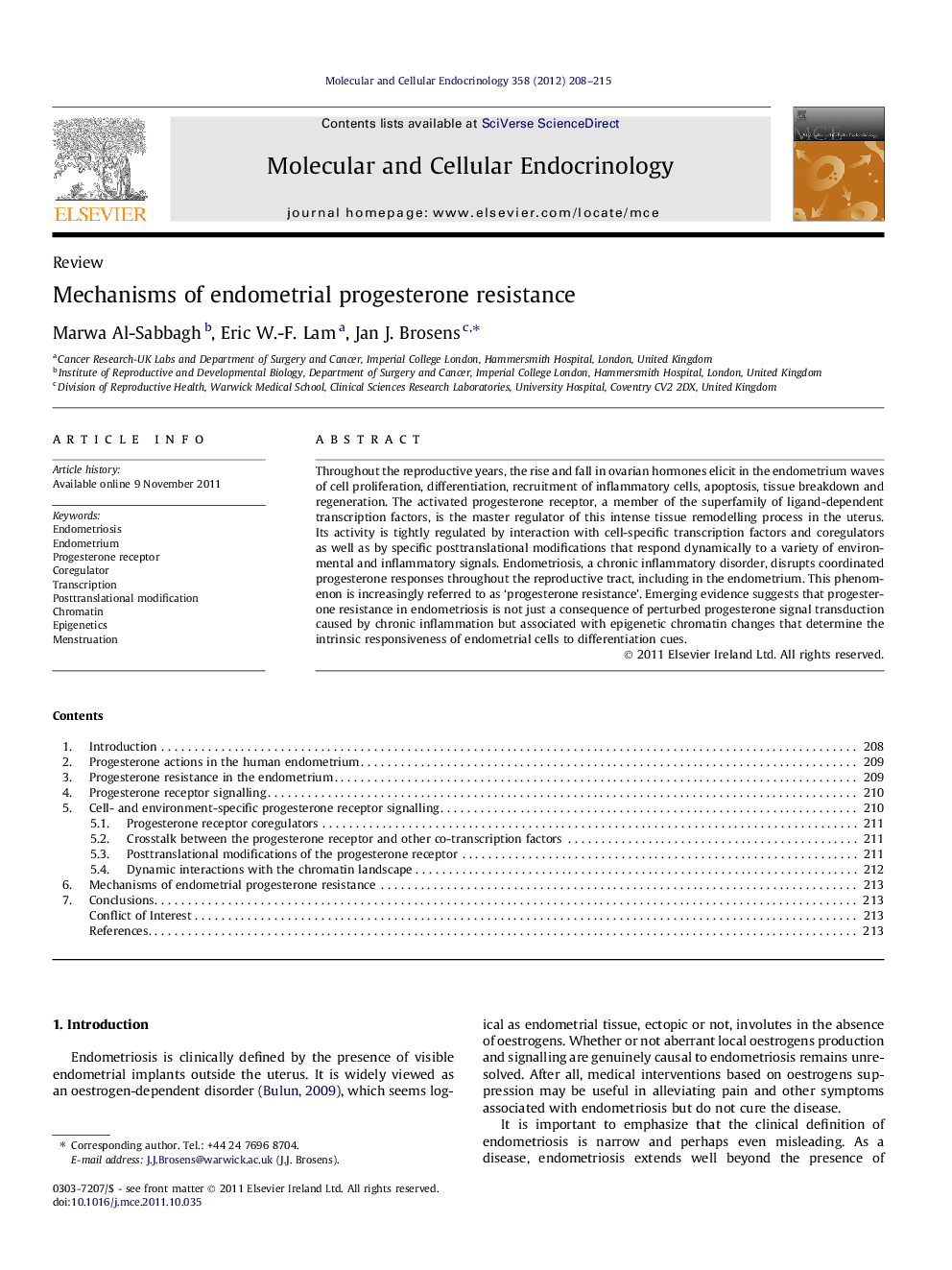| Article ID | Journal | Published Year | Pages | File Type |
|---|---|---|---|---|
| 2196343 | Molecular and Cellular Endocrinology | 2012 | 8 Pages |
Throughout the reproductive years, the rise and fall in ovarian hormones elicit in the endometrium waves of cell proliferation, differentiation, recruitment of inflammatory cells, apoptosis, tissue breakdown and regeneration. The activated progesterone receptor, a member of the superfamily of ligand-dependent transcription factors, is the master regulator of this intense tissue remodelling process in the uterus. Its activity is tightly regulated by interaction with cell-specific transcription factors and coregulators as well as by specific posttranslational modifications that respond dynamically to a variety of environmental and inflammatory signals. Endometriosis, a chronic inflammatory disorder, disrupts coordinated progesterone responses throughout the reproductive tract, including in the endometrium. This phenomenon is increasingly referred to as ‘progesterone resistance’. Emerging evidence suggests that progesterone resistance in endometriosis is not just a consequence of perturbed progesterone signal transduction caused by chronic inflammation but associated with epigenetic chromatin changes that determine the intrinsic responsiveness of endometrial cells to differentiation cues.
